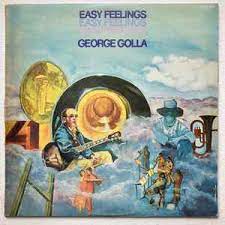
Daily Dose Of Jazz…
George Golla was born May 10, 1935 in Chorzów, Poland. He emigrated to Australia in the 1950s and began working in Sydney from 1957. Two years later he commenced a long-term musical partnership with the clarinetist, flautist and saxophonist Don Burrows that continued for nearly forty years.
Recording frequently in duo, quartets and other combinations, they nurtured and featured many young talents, including brassman and multi-instrumentalist James Morrison, guitarist Guy Strazzullo, drummer David Jones and others.
As educators they taught at the New South Wales Conservatorium and Golla was a teacher at the Academy of Guitar in Bondi alongside Don Andrews. He specialized in jazz and classical guitar and has written several books on theory, scales and the modes.
George toured frequently throughout Australia, playing on-call with international artists such as vibraphonist Gary Burton in the early 1970s. He has had a long association with Luis Bonfa and other Brazilian musicians. He has made hundreds of recordings, including The Don Burrows Quartet at the Sydney Opera House, Cherry Pie 1017 & 1032, and Steph’n’Us, with Stephane Grappelli during a tour with Grappelli and Burrows.
Guitarist George Golla, at 85, continues to perform in and around Sydney with flugelhorn player and singer songwriter Elizabeth Geyer, and tours interstate and internationally, records and conducts workshops.
More Posts: bandleader,guitar,history,instrumental,jazz,music
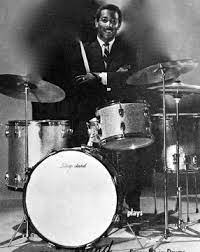
Three Wishes
The night Oliver Jackson gave up his three wishes he was caught off guard, however, to the Baroness he replied:
- That’s a hell of a question! Well, I think the first thing would be… It may sound corny, but, compatibility of all people in the world.”
- “Then I have got to go to my own self – to my health.”
- “And then I’d have to say spontaneous music! I think that’s be everything. I’d started to put some money in there – I never have enough of that – but a lot of people have money and still don’t have what they really want..”
*Excerpt from Three Wishes: An Intimate Look at Jazz Greats ~ Compiled and Photographed by Pannonica de Koenigswarter
More Posts: baroness,drums,history,instrumental,jazz,music,pannonica,three,wishes
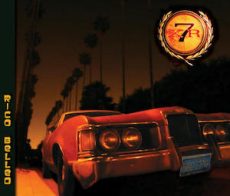
Daily Dose Of Jazz…
Rico Belled was born in the Netherlands on May 9, 1970 to Spanish/Swiss parents. Growing up in a multicultural environment, with a pianist father, he was exposed to many styles of music. He started playing piano at age 11, exploring everything from classical music to jazz. At 15 he started playing gigs with local bands doing pop and blues, while slowly getting interested in the bass, which he started practicing at age 17.
In 1989, while studying electrical engineering at the TU Delft, Rico met Roy Cruz in The Hague and joined his weekly Sunday night band at De Pater, exploring the world of Funk and Jazz playing Fender Rhodes. During these sessions they broke down all stylistic walls from playing Weather Report tunes to full on James Brown Funk, featuring as many as 10 people on the little stage. Here he got an education in the art of jamming.
Realizing music was his passion, in 1992 Belled gave up engineering and moved to Los Angeles, California and attended the Musicians Institute in Hollywood. Post graduation he was already playing with a few different groups in the Los Angeles area and in the following years made a name for himself as a bass and keyboard session musician. His breakthrough came when he joined Wrecking Crew pianist Don Randi and the house band at the Baked Potato in 1994. A two year residency offered the opportunity to lead his own group performing his original music at the club.
This led to him performing and recording with Marc Antoine, The Dan Band, Sound Assembly, Jeff Robinson, Leslie Paula’s Latin Soul Band, Liza Minelli, Chris Standring, Scott Grimes, Keiko Matsui and many others. He has co-written and published music with Mindi Abair and Jeff Robinson. All this led to him being asked to join the Rippingtons, starting with recording the album ‘Modern Art’, for which he received a Grammy Nomination in 2010. Still a member, bassist Rico Belled remains one of the top bassists in Los Angeles, known for his deep groove and versatility, staying busy live and in the studio.
More Posts: bandleader,bass,composer,history,instrumental,jazz,music
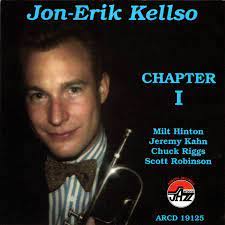
Daily Dose Of Jazz…
Jon-Erik Kellso was born on May 8, 1964 in Dearborn, Michigan and began playing jazz music very young in life, while receiving some formal training in classical idioms.
He moved from Detroit, Michigan to New York City in 1989 to join Vince Giordano and the Nighthawks. He has recorded many movie and TV soundtracks with the group, including the Grammy Award-winning soundtrack for Boardwalk Empire, The Aviator, Bessie, Ghost World, and Revolutionary Road.
He has performed and/or recorded with J.C. Heard, Catherine Russell, Cecile McLorin Salvant, Kat Edmonson, Milt Hinton, Ruby Braff, Marty Grosz, Bob Haggart, Dick Hyman, Wynton Marsalis, Ken Peplowski, Bucky Pizzarelli, Bob Wilber, Howard Alden, Wycliffe Gordon, and Kenny Davern among other jazz musicians.
Not limited to the genre he has also played and recorded with Linda Ronstadt, Leon Redbone, Maria Muldaur, Elvis Costello, Dave Van Ronk, and many others, appearing on over one hundred records. Since 2007 Kellso has led The EarRegulars at the historic Ear Inn in Manhattan on Sunday nights, and has recorded two acclaimed albums. Trumpeter Jon~Erik Kellso, who is a prolific session player, continues to perform and record.
More Posts: bandleader,history,instrumental,jazz,music,trumpet
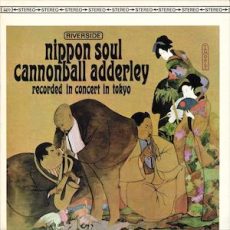
Requisites
Nippon Soul ~ Cannonball Adderley Sextet | By Eddie Carter
This morning’s discussion is about an album I first heard when I lived in Cincinnati, Ohio, in 1988. Two of my favorite record shops to visit each weekend were Everybody’s Records and Record Theatre. At the latter store, Nippon Soul (Riverside RM 477/RS 9477) by The Cannonball Adderley Sextet was playing over the loudspeakers, which blew me away, and I picked it up immediately. It was recorded during the group’s first Japanese tour in July 1963 at Tokyo’s Sankei Hall and released the following year. The personnel is Nat Adderley on cornet, Julian “Cannonball” Adderley on alto sax, Yusef Lateef on flute (track: A1), oboe (track: B3), and tenor sax (tracks: A2, A3, B1, B2), Joe Zawinul on piano, Sam Jones on bass, and Louis Hayes on drums. My copy is the 1966 US Stereo reissue (Riverside RLP 9477).
Side One opens with Cannonball’s introduction of the title tune, Nippon Soul, an original by the altoist that begins with the sextet’s carefree melody. Nat sets the solos in motion with an infectiously swinging interpretation; then, Cannonball delivers a statement of delightful pleasure. Yusef’s flute compliments both horns on the following performance, and Joe scores a direct hit in the closer ahead of the theme’s reprise and ending. Cole Porter’s jazz standard, Easy To Love, moves briskly from the two-instrument introduction by Cannonball and Louis into the ensemble’s rapid delivery of the melody. Cannonball takes off like a race car covering a great distance in the opening solo, then engages in a vigorous exchange with Hayes into the sextet’s closing chorus, ending abruptly.
The first side finale, The Weaver by Yusef Lateef, is a dedication to a friend, Lee Weaver. Cannonball briefly introduces the song; then, the rhythm section gives an exhilarating introduction featuring each of the horns in the melody. Cannonball opens the solos energetically, then Yusef’s tenor sax enters slowly but expands into an ambitious performance of fierce intensity. Nat delivers an equal amount of heat on the following statement, and Joe enters the spotlight last with a lively aggressiveness preceding the ensemble’s quick reprise and climax. Side Two starts with Tengo Tango, Julian, and Nat’s original that’s suitable for dancing. The sextet opens the melody collectively; then, Cannonball gives a funky solo before the theme returns and the dance ends.
Come Sunday by Duke Ellington comes from his Black, Brown, and Beige suite. It opens with a gorgeous duet between Joe and Sam, the featured performers in this rendition. Joe shows a light touch in his playing that characterizes the beauty of this song to perfection, complimented by Sam’s bass and the front line’s subtle support into a tender ending. Brother John by Yusef Lateef is his tribute to John Coltrane and features him on the oboe as he leads the group through the melody. Yusef takes flight first with an adventurous opening solo. Afterward, Cannonball briefly comments, then Nat blazes into the second statement with considerable agility. Cannonball follows with a swiftly paced presentation, and Joe has one of his best moments ahead of Yusef’s theme restatement and finale.
Orrin Keepnews produced Nippon Soul, but who recorded the album is unknown. However, don’t let that dissuade you. The sound quality is exquisite, with an excellent soundstage that places the listener in the Sankei Hall audience as the musicians perform. If you’re a Cannonball Adderley fan, I invite you to check out Nippon Soul the next time you’re out vinyl shopping. It’s a fantastic set capturing The Cannonball Adderley Sextet at the top of their game, and despite being sixty years old, it sounds as fresh today as when it was first released. This album also complements their New York and San Francisco live releases and is highly recommended for a spot in your library!
~ Jazz Workshop Revisited (Riverside RM 444/RS 9444), The Cannonball Adderley Sextet in New York (Riverside RLP 404/RLP 9404) – Source: Discogs.com ~ Come Sunday, Easy To Love – Source: JazzStandards.com © 2023 by Edward Thomas Carter
More Posts: choice,classic,collectible,collector,history,instrumental,jazz,music,saxophone




